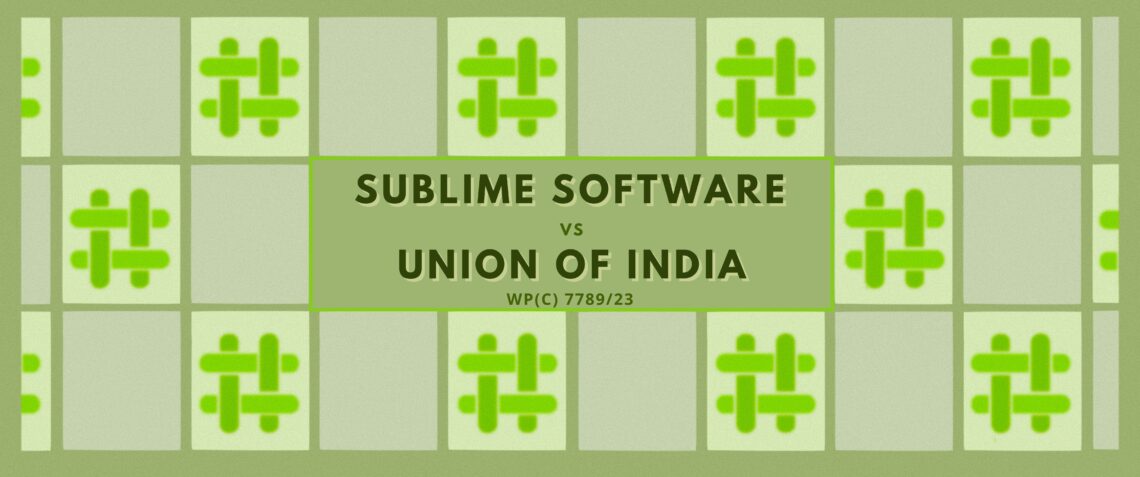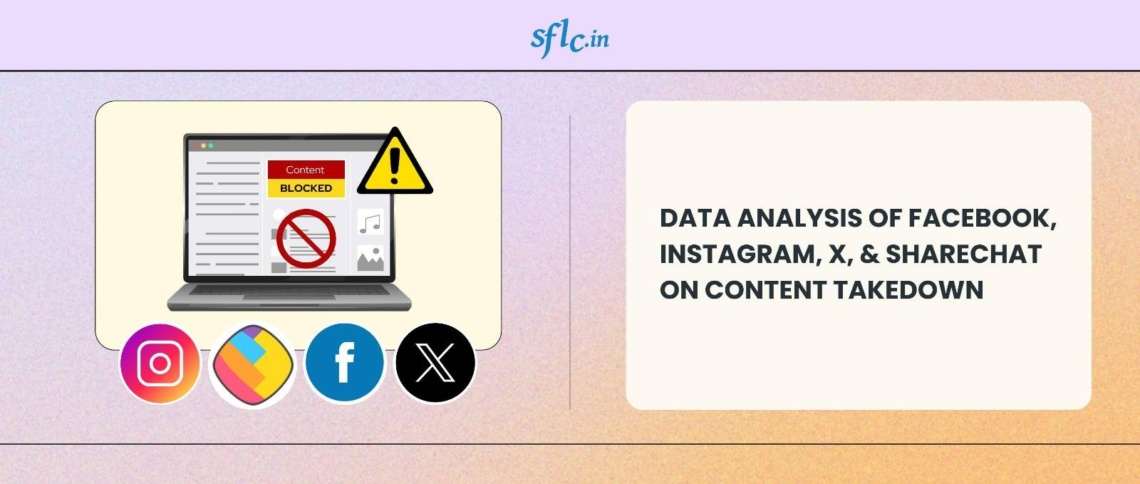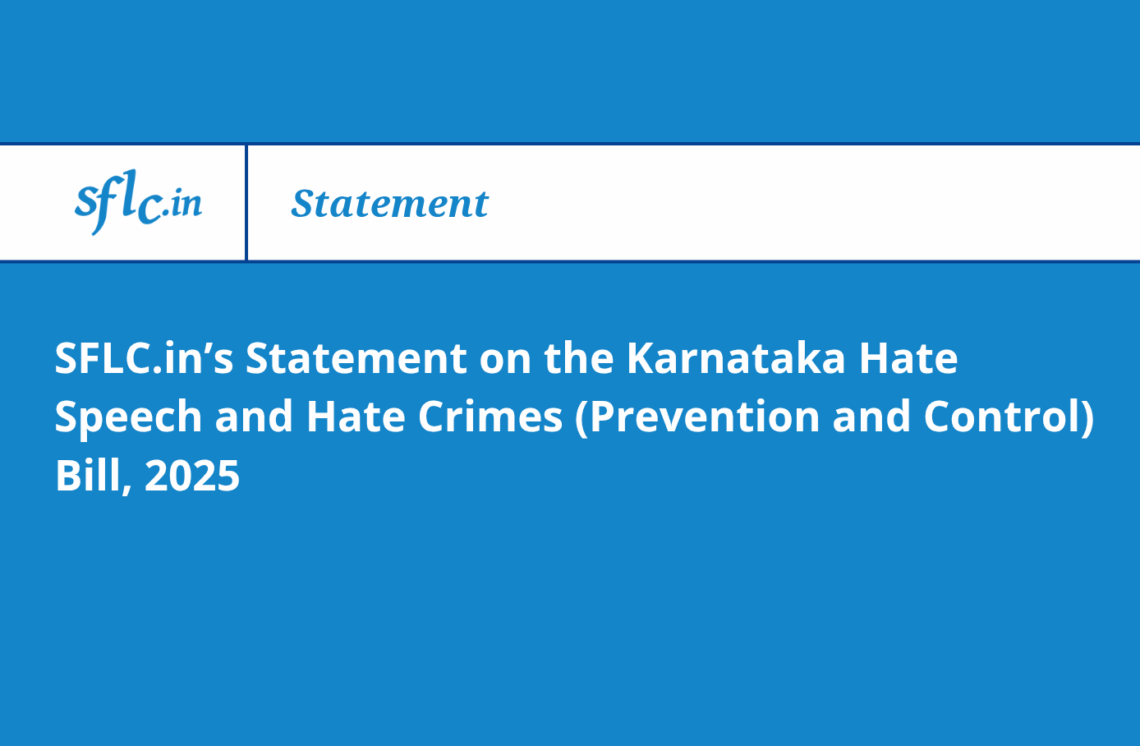Case Name: Sublime Software Ltd. v. Union of India
[W.P. (C) 7789/2023]
SFLC.in represented the petitioner, Sublime Software Ltd., in challenging the blocking of the FOSS messaging platform ‘Briar’ under Section 69A of the Information Technology Act, 2000 on grounds of non-observance of statutory provisions under the Information Technology (Procedure and Safeguards for Blocking of Access of Information by Public) Rules 2009. The petitioner received no notice before the blocking orders were issued. It is argued that this lack of procedural fairness infringes upon the constitutional rights of the petitioner under Article 14.
This writ petition, under Article 226 of the Constitution, was filed in the Delhi High Court by SFLC.in counsels Mishi Choudhary, Prasanth Sugathan, and Arjun Adrian D’Souza.
Brief Facts of the Petition
Briar is a free and open-source software (FOSS) used for purposes of communication in a privacy-enhanced environment. It utilizes encryption. Its importance in enabling communication during emergencies and disasters, particularly in areas with limited internet connectivity is notable.
The petition underscores that the blocking process, whether routine or in emergencies, necessitates the issuance of notices to the concerned person or originator, providing an opportunity for a hearing. However, in the present case, no such notice was issued to the petitioner, originator, or intermediary. The petitioner learned through media reports on May 1, 2023, indicating a lack of transparency and procedural fairness. It is further contended that the government’s power to block access, as stipulated in Section 69A, must adhere to the prescribed procedural safeguards outlined in the Information Technology (Procedure and Safeguards for Blocking of Access of Information by Public) Rules 2009.
Consequently, the petitioner contends that non-compliance with statutory mandates and procedural rules reflects manifest error and arbitrariness. Hence, the petition seeks redress against such blocking orders, in contravention of the statutory mandate of the Information Technology (Procedure and Safeguards for Blocking of Access of Information by Public) Rules 2009 and constitutional rights guaranteed under Article 14 to the petitioner.
Grounds
1. Violation of Section 69A(1) of the Information Technology Act, 2000 and Rule 8(1) of the Information Technology (Procedure and Safeguards for Blocking of Access of Information by Public) Rules 2009:
The petitioner challenges the Central Government’s action, contending that it violates Section 69A(1) which mandates compliance with the Information Technology (Procedure and Safeguards for Blocking of Access of Information by Public) Rules 2009, notably Rule 8(1). This Rule mandates the issuance of a notice by the Designated Authority of the Central Government to the concerned person/originator, responsible for hosting the information before access to such information can be blocked. Further, the procedural safeguard under Section 69A requires reasons to be recorded in writing in the Blocking Order. In the present case, no notice has been issued by the Central Government to the Petitioner, the originator or the intermediary, nor any Blocking Order provided.
2. Non-compliance with the Mandate under Shreya Singhal v. Union of India [(2015) 5 SCC 1]:
The petitioner argues that the Central Government’s actions violate the principles established by the Hon’ble Supreme Court in Shreya Singhal (above). The court emphasized that blocking under Section 69A requires a reasoned order in writing to be provided to both the intermediary and the originator before a blocking order is passed. including a hearing for the originator and/or intermediary.
3. Violation of the Fundamental Rights under Part III of the Constitution:
It alleges a violation of constitutional rights, including Article 14 (equality before the law and equal protection of laws), and Article 13(2) (prohibition of laws contravening fundamental rights). Additionally, the petitioner highlights the importance of the Briar platform during emergencies and asserts that the government’s action constitutes an unreasonable interference.
Prayer
The petition seeks the following under its prayer:
- That a writ of Mandamus be issued, directing the Respondent to produce and publish the Blocking Order effectuating the blocking of the open-source messaging application ‘Briar’ at the earliest.
- That a writ of Certiorari be issued, quashing the Blocking Order passed by the Respondent under Section 69A.
- That any additional orders be passed, directing the Respondent to disable the ban of access and unblock the open-source messaging application of the Petitioner ‘Briar’.
Hearing Update on 30.05.2023
No substantive order passed as the Court was not being held.
Hearing Update on 14.07.2023
Respondent sought an adjournment, orally submitting in Court that the Blocking order would be produced on the next date of hearing.
Hearing Update on 19.09.2023
Notice was issued to the Respondent. The Court observed that any order of blocking under Section 69A(1) & (2) must be supported by reasons. It directed the Respondent to produce a Counter Affidavit stating the reasons for blocking of the applications.
Hearing Update on 02.11.2023
The matter could not be taken up. The next date of hearing is 19.01.2024.
Hearing Update on 19.01.2024
The matter could not be taken up. The next date of hearing is 06.05.2024.
Hearing Update on 06.05.2024
Arguments made on issue of non-observance of procedure established under the Section 69A of the IT Act, 2000 and IT Blocking Rules, 2009, and violation of principles of natural justice whereby blocking order was not provided to Petitioner till date. Reliance placed on Supreme Court decisions of Madhyamam (2023) and Shreya Singhal (2015). Court re-listed matter for next day.
Hearing Update on 07.05.2024
After some arguments, Single-Judge Bench of Justice Subramonium Prasad reserved the judgment. The court also granted liberty to file written submissions.
Hearing update on 02.07.2024:
The Delhi High Court dismissed the writ petition filed by the Petitioner on the ground that in matters of national security, principles of natural justice can be given a go-by, relying on the judgment of the Supreme Court in Ex-Armymen’s Protection Services (2014). The Hon’ble Court did not engage with several arguments made by the Petitioner, including reliance on the cases of Madhyamam Broadcasting (2023) and Shreya Singhal (2015).
Hearing update on 20.08.2024 (LPA):
The Petitioner’s appeal in LPA 797/2024 was partly heard by the Division Bench of the Delhi High Court comprising the Acting Chief Justice and Justice Tushar Rao Gedela. Re-listed for 21.08.2024.
Final hearing update on 21.08.2024 (LPA):
The Delhi High Court directed the Union of India through MeitY to supply a redacted version or summary of the final blocking order within 2 weeks on an undertaking by the counsel for Briar that the merits of the order would not further be challenged.
SLFC.in provided pro-bono legal assistance to Briar in the matter.
Find a copy of the Petition as well as the Orders attached below.




